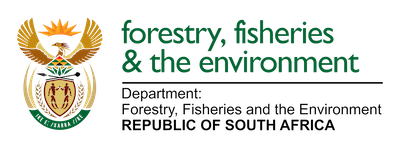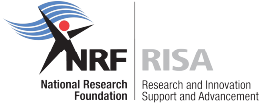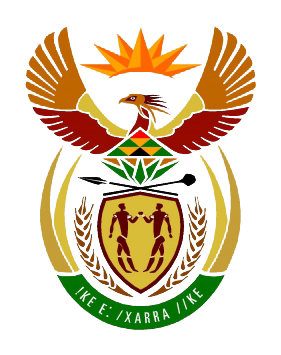
by Ria Olivier | Mar 8, 2023 | Commemorative Days, International Days, Marion Island, Meteorology, Overwintering Team, Southern Ocean, sub-Antarctic, Team member, Women in Science
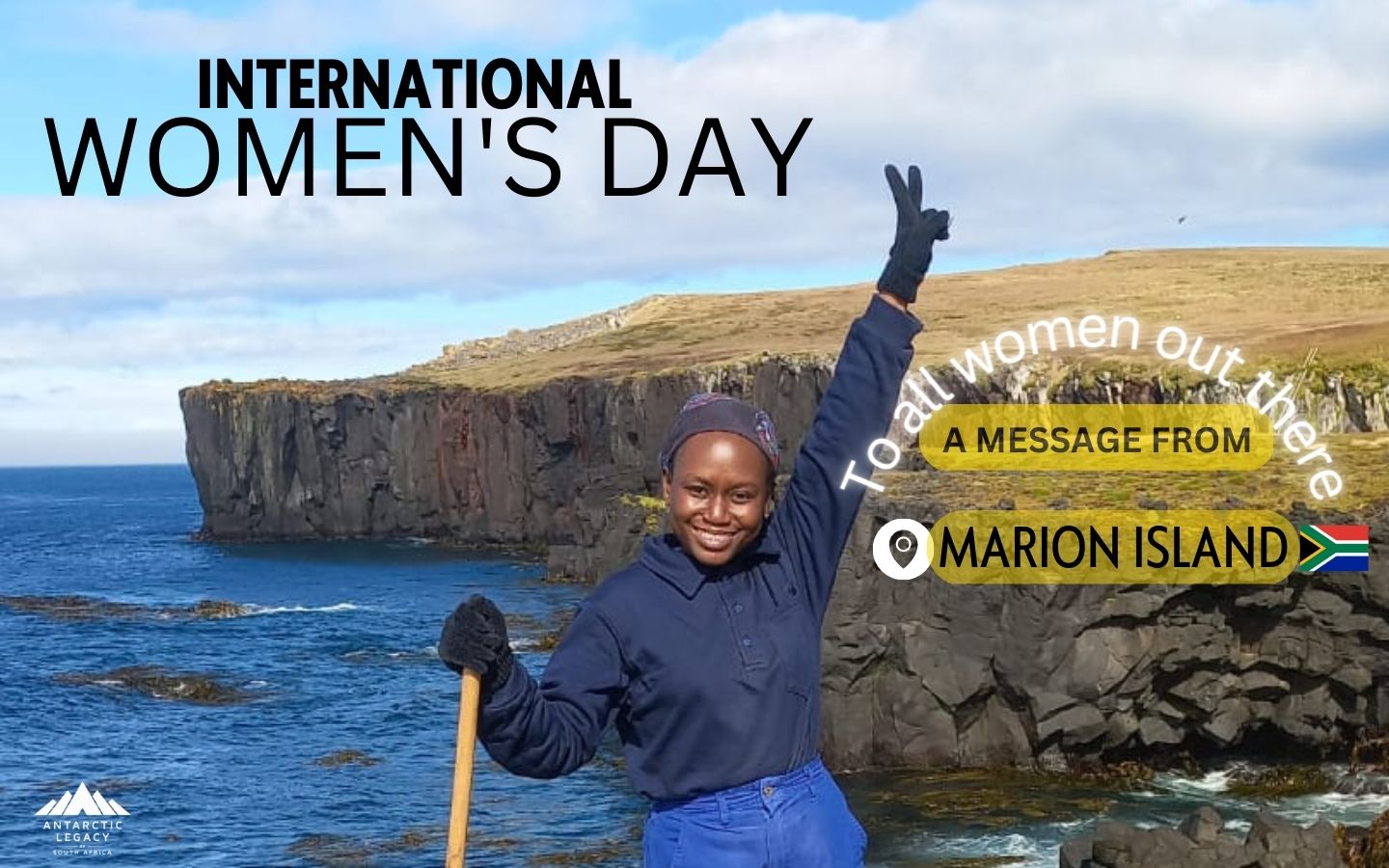
In celebration of International Women’s Day, we came in contact with Tanganedzani “Tanga” Tshitavhe. She is an Assistant Meteorological Technician, for the South African Weather Service (SAWS), on the sub-Antarctic Marion Island.
This is a strong woman, with passion for her work and the sub-Antarctic environment. She also has a great sense of humour.
This is her message for all women out there:
“Today we celebrate the resilience, strength, grace, and beauty of women all around the world. On this day, let’s remember the importance of equity, work towards creating a more inclusive world, and honour the contributions and achievements of women”.
I mentioned she has a great sense of humour:
Today we are having a clear sky (sunshine) on Marion Island and as the Weather-Lady, here is a Sun pun.
Question:
Why is the Sun not very heavy to carry?
Answer:
Because it is very light
Wishing you all a happy International Women’s Day day filled with joy and laughter.
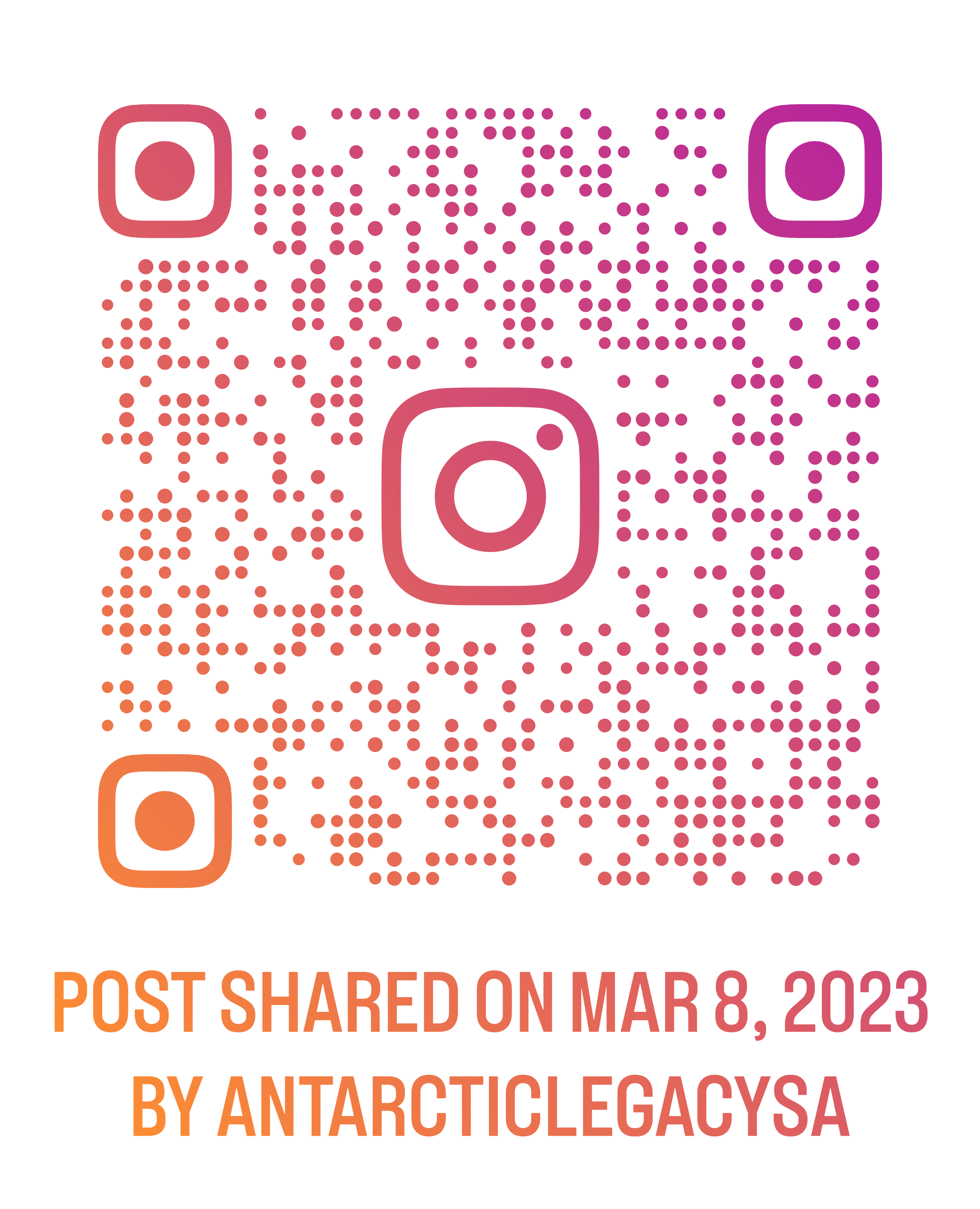
Text and photos supplied by: Tanganedzani Tshitavhe (Marion79)
Edited: Anche Louw, South African Polar Research Infrastructure (Data, Products and Society Node), 08 March 2023.
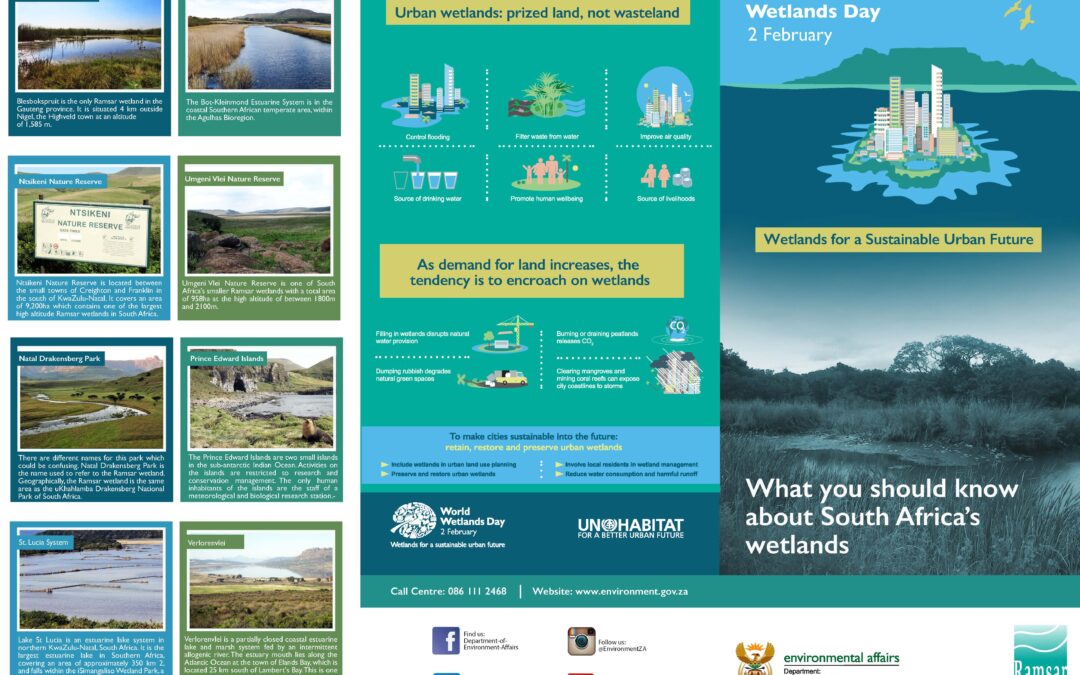
by Ria Olivier | Feb 2, 2023 | Commemorative Days, Current Event, Environment, International Days, Marine Protected Area, Marion Island, Mice Eradication, News, Prince Edward Island, Prince Edward Islands, SANAP, Science, Southern Ocean, sub-Antarctic
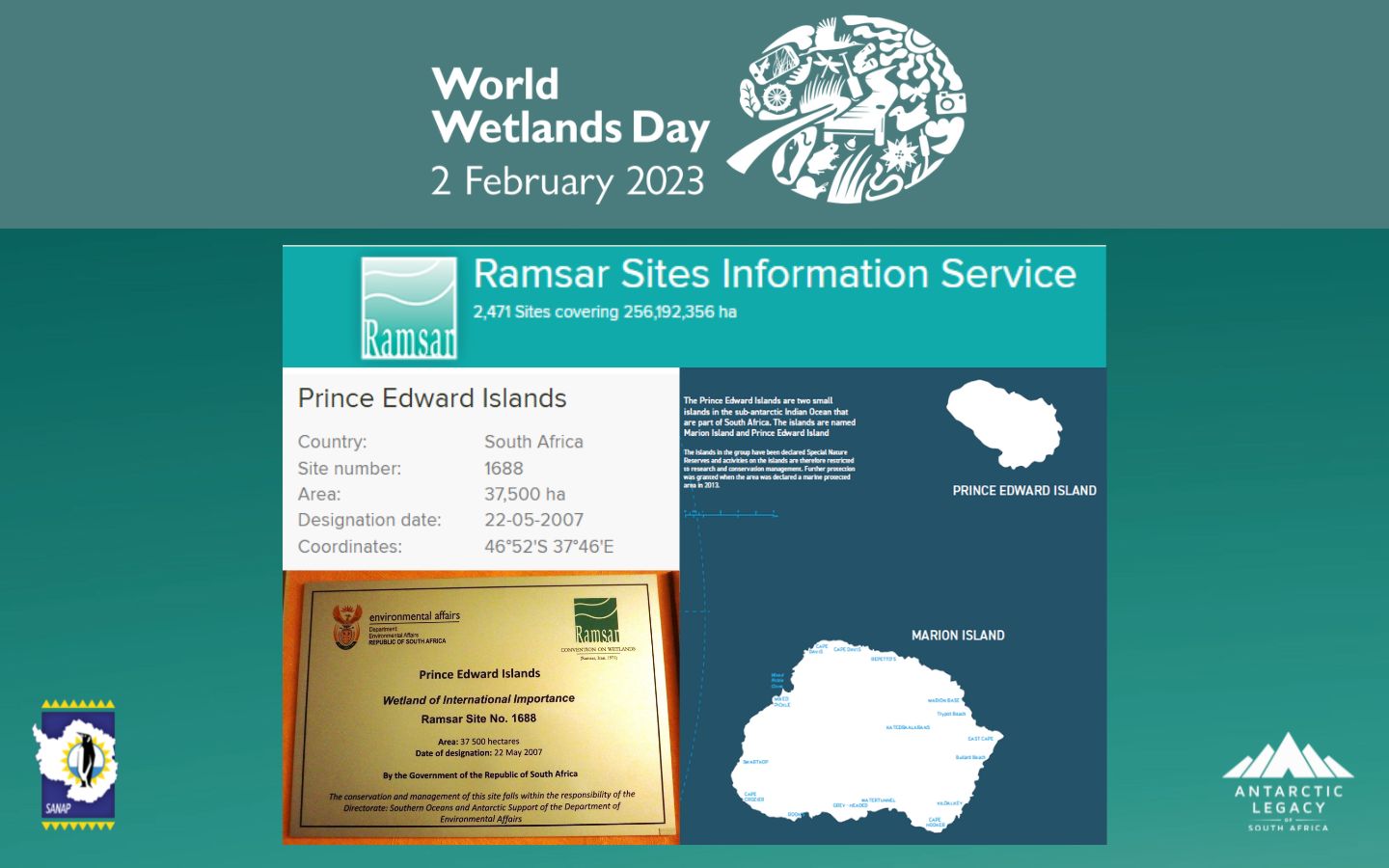 World Wetlands Day, is celebrated every year on 02 February. On this day, in 1971, the Convention on Wetlands of International Importance (Ramsar Convention) was signed in Ramsar, Iran.
World Wetlands Day, is celebrated every year on 02 February. On this day, in 1971, the Convention on Wetlands of International Importance (Ramsar Convention) was signed in Ramsar, Iran.
World Wetlands Day is celebrated to to “raise awareness and understanding of what wetlands are and how we can contribute towards restoring them through making conscious choices, becoming persuasive voices and taking bold actions” (read more here).
What is a wetland?
A wetland is defined as the land which is transitional between terrestrial and aquatic systems where the water table is usually at or near the
surface, or the land is periodically covered with shallow water, and which land in normal circumstances supports or would support vegetation typically adapted to life in saturated soil (1).
Why is wetland restoration so important? Listed below are a few benefits of wetland restoration:
- Enhanced biodiversity
- Improve water supply
- Store carbon
- Reduced impacts from flooding
- Improve livelihoods
- Enhance well–being
- Protection of agricultural resources (1; 2)
Is your role in wetland restoration important?
Yes! Our individual and collective actions have an impact (1).
What can you as individual do to help protect and preserve wetlands?
- Participate in programs that help protect and restore wetlands.
- Report illegal actions such as unauthorized wetland fill or dredging activities to government authorities
- Pick up litter and dispose in appropriate trash containers. Keep surface areas that wash into storm drains clean from pet waste, toxic chemicals, fertilizers and motor oil, which can eventually reach and impair our wetlands.
- Use native species when planting trees, shrubs and flowers to preserve the ecological balance of local wetlands.
- Avoid wetland when you are expanding your house.
- Use phosphate-free laundry and dishwasher detergents. Phosphates encourage algae growth, which can suffocate aquatic life.
- Use non-toxic products for household cleaning and lawn and garden care. Never spray lawn and garden chemicals outside on a windy day or on a day that it might rain and wash the chemicals into waterways.
- Enjoy the scenic and recreational opportunities wetlands offer, while preserving their integrity for future generations by minimizing the use of heavy equipment and staying in designated visitor areas where available (3).
Did you know that the South African Prince Edward Islands (Prince Edward Island and Marion Island) is declared as Wetland of International Importance?
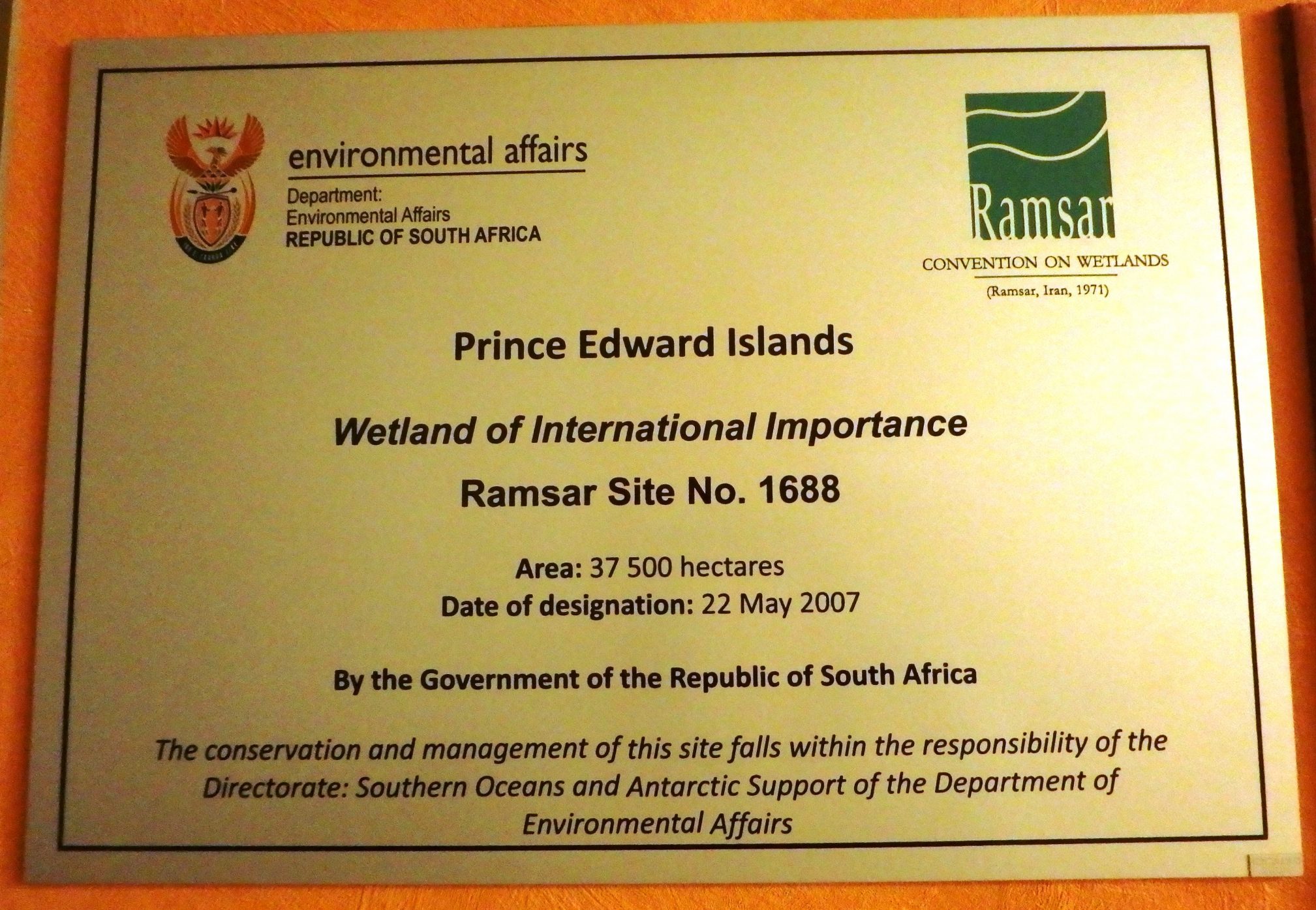 The Prince Edward Islands was declared Wetland of International Importance: Ramsar Site No.1688, on 22 May 2007. The conservation and management of this site falls within the responsibility of the Directorate: Southern Oceans and Antarctic Support of the Department of Forestry, Fisheries and the Environment.
The Prince Edward Islands was declared Wetland of International Importance: Ramsar Site No.1688, on 22 May 2007. The conservation and management of this site falls within the responsibility of the Directorate: Southern Oceans and Antarctic Support of the Department of Forestry, Fisheries and the Environment.
Want to know about wetlands in South Africa?
Click on the posters to enlarge.
What’s been happening on Social Media
Sources:
1- https://www.worldwetlandsday.org/
2- https://www.dffe.gov.za/event/international/wetlandsday2013
3- https://www.epa.gov/wetlands/what-you-can-do-protect-coastal-wetlands
4- https://rsis.ramsar.org/ris/1688
5- https://alp.lib.sun.ac.za/handle/123456789/15327
6- https://blogs.sun.ac.za/antarcticlegacy/event/world-wetlands-day/
Anche Louw, South African Polar Research Infrastructure, 02 February 2023.

by Ria Olivier | Nov 10, 2022 | Antarctica, Environment, Gough Island, International Days, Marion Island, News, Research, SA Agulhas II, Science, Southern Ocean, sub-Antarctic
World Science Day for Peace and Development is coordinated each year by UNESCO on 10 November.
The theme of World Science Day for Peace and Development is Basic Sciences for Sustainable Development. This day is being celebrated within the International Year of Basic Sciences for Sustainable Development, which kicked off on 8 July 2022 (UNESCO).
World Science Day for Peace and Development aims to build a bridge between science and society. This should be an encouragement to all scientific programmes to create an open line for communication between scientists and the public. The public needs to be informed about polar research as “the polar regions are extremely important and connected to the rest of the planet. The polar regions are essential for the health and future of the fantastic planet earth” (European Polar Board Executive Secretary, Dr Renuka Badhe).
Keep an eye out for more information on the Antarctic Season Launch 2022 – providing a platform for discussions between the SANAP scientific community and the public.
Scientific projects within the South African National Antarctic Programme (SANAP) are based on basic sciences (Mathematics, Physics, Chemistry, and Biology). Below we point out some of these scientific projects funded by the National Research Foundation (SANAP-Funding).
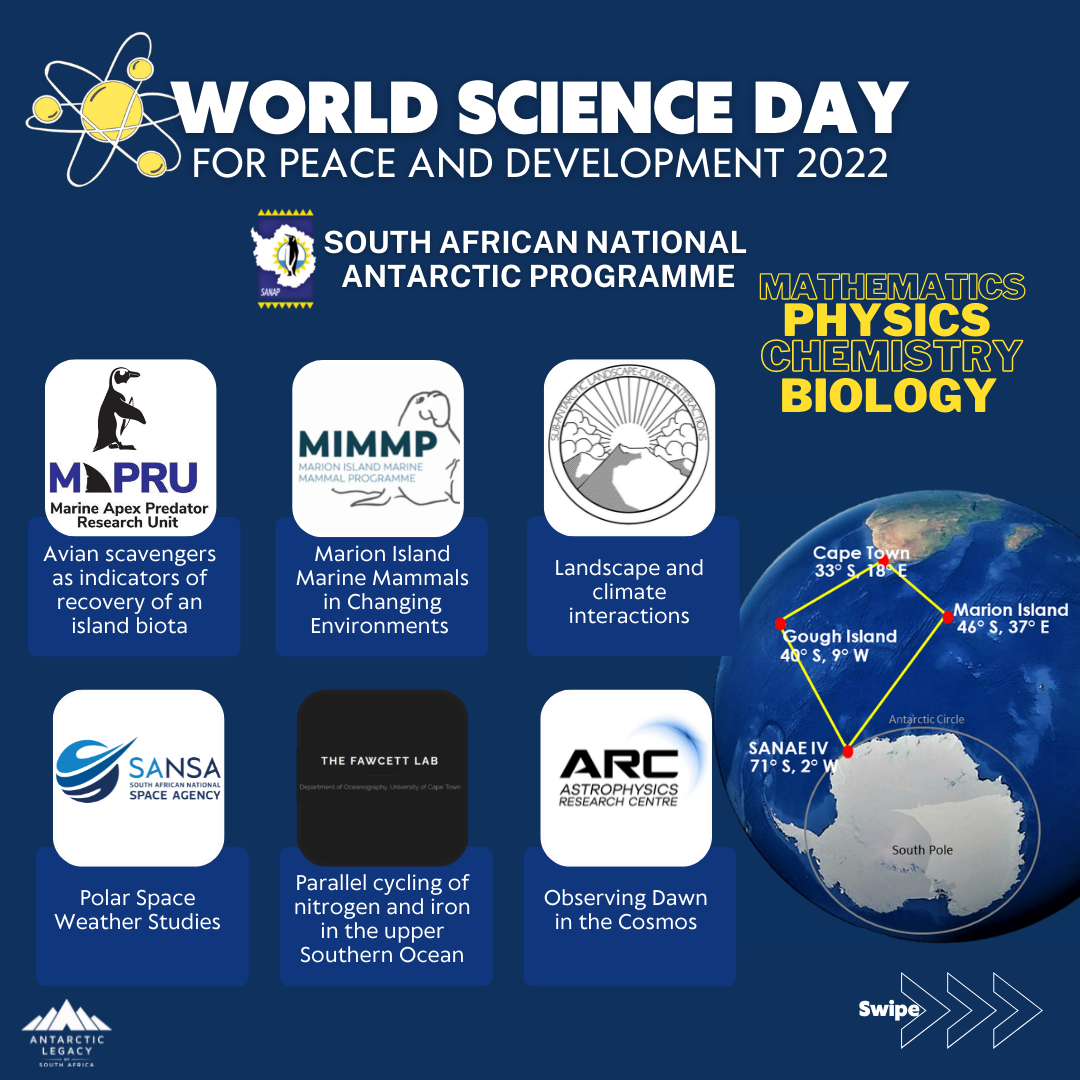
See below a list of all the research projects funded by the NRF-SANAP. These projects will be funded until the end of 2023.
Researchers previously involved in SANAP and those new to Antarctic research from universities not previously involved in SANAP are encouraged to put in a project proposal once the new cycle for applications opened.
View the current NRF-SANAP projects and previous NRF-SANAP projects here.

Anche Louw, Antarctic Legacy of South Africa, 10 November 2022.
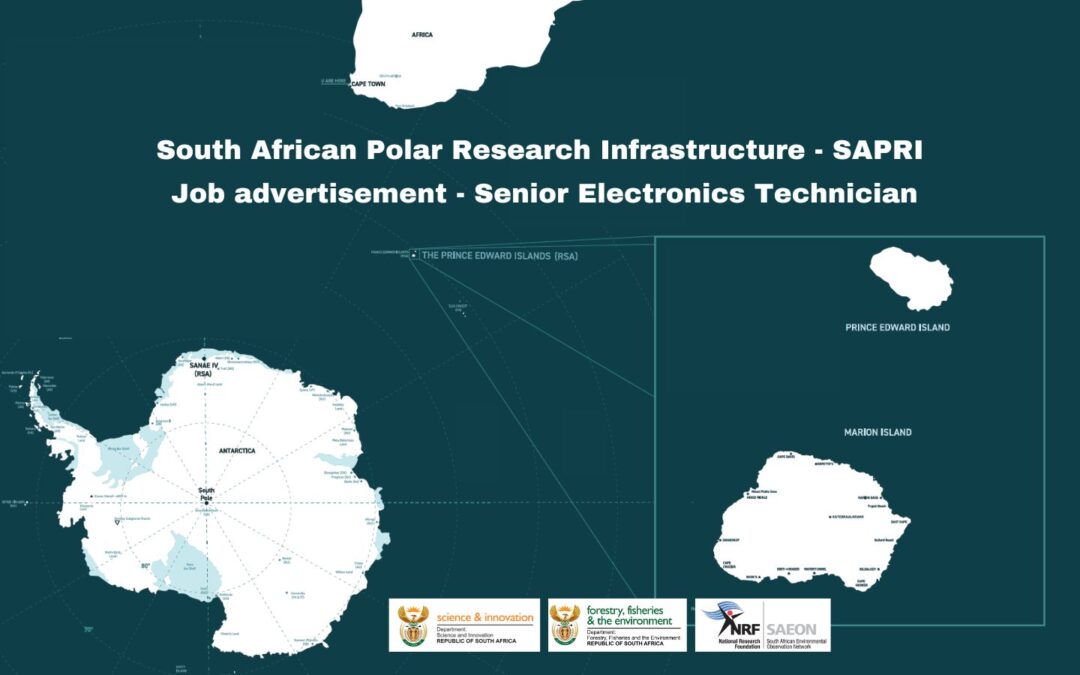
by Ria Olivier | Nov 2, 2022 | Announcement, Antarctica, Gough Island, Jobs, Marion Island, Prince Edward Island, Prince Edward Islands, SA Agulhas II, SA Polar Research Infrastructure, SANAE, SANAP, SAPolarRI, SAPRI, Science, Southern Ocean, sub-Antarctic
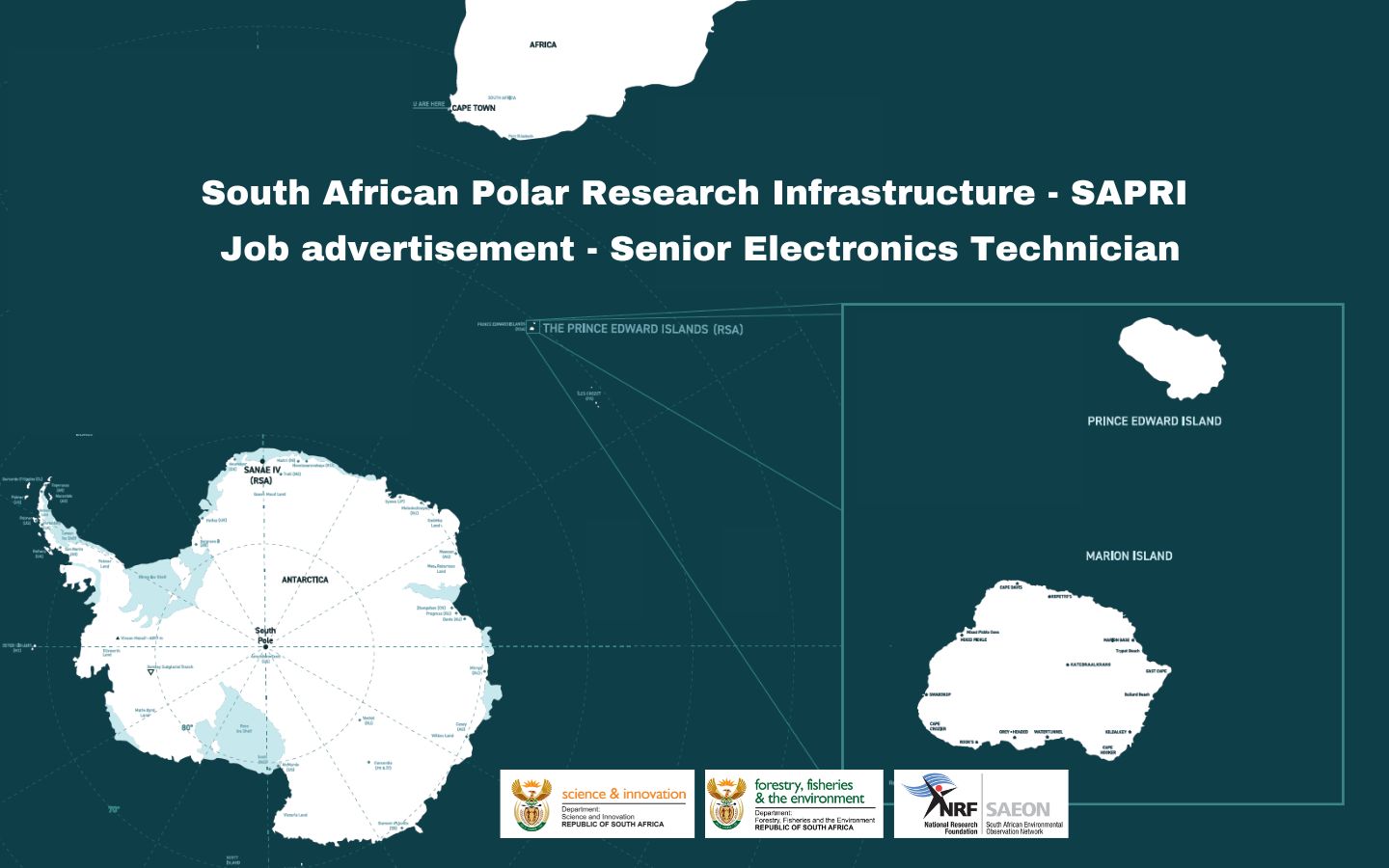
As per job advertisement:
The South African Environmental Observation Network (SAEON) is a research platform funded by the Department of Science and Innovation (DSI) and managed by the National Research Foundation (NRF).
SAEON is mandated to establish and manage long-term environmental observatories; maintain reliable long-term environmental data sets; promote access to data for research and/or informed decision making; and contribute to capacity building.
This position is supported by the Department of Science and Innovation’s South African Polar Research Infrastructure (SAPRI) programme and will be based in Cape Town.
A Senior Electronics Technician to provide technical and logistic support for the SAPRI programme’s various research and long-term monitoring activities in the offshore marine and Southern Ocean, sub-Antarctic Islands and Antarctica, conducted onboard South African and international research vessels.
Application Closing Date: 16 November 2022
Click here to view the position advert.
Read more about SAPRI:
South African Polar Research Infrastructure (SAPRI): Feedback and start of the Preparatory Phase
Anche Louw, Antarctic Legacy of South Africa
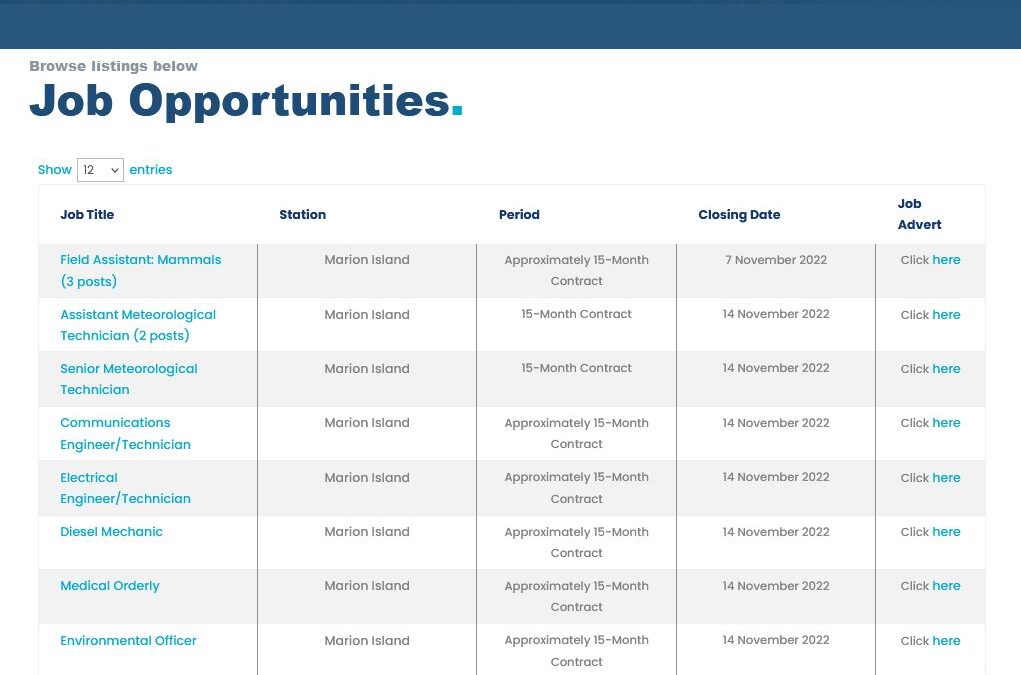
by Ria Olivier | Oct 31, 2022 | Announcement, Jobs, Marion Island, News, Overwintering Team, Research, SANAP, Science, Southern Ocean, Stations, sub-Antarctic, Team member
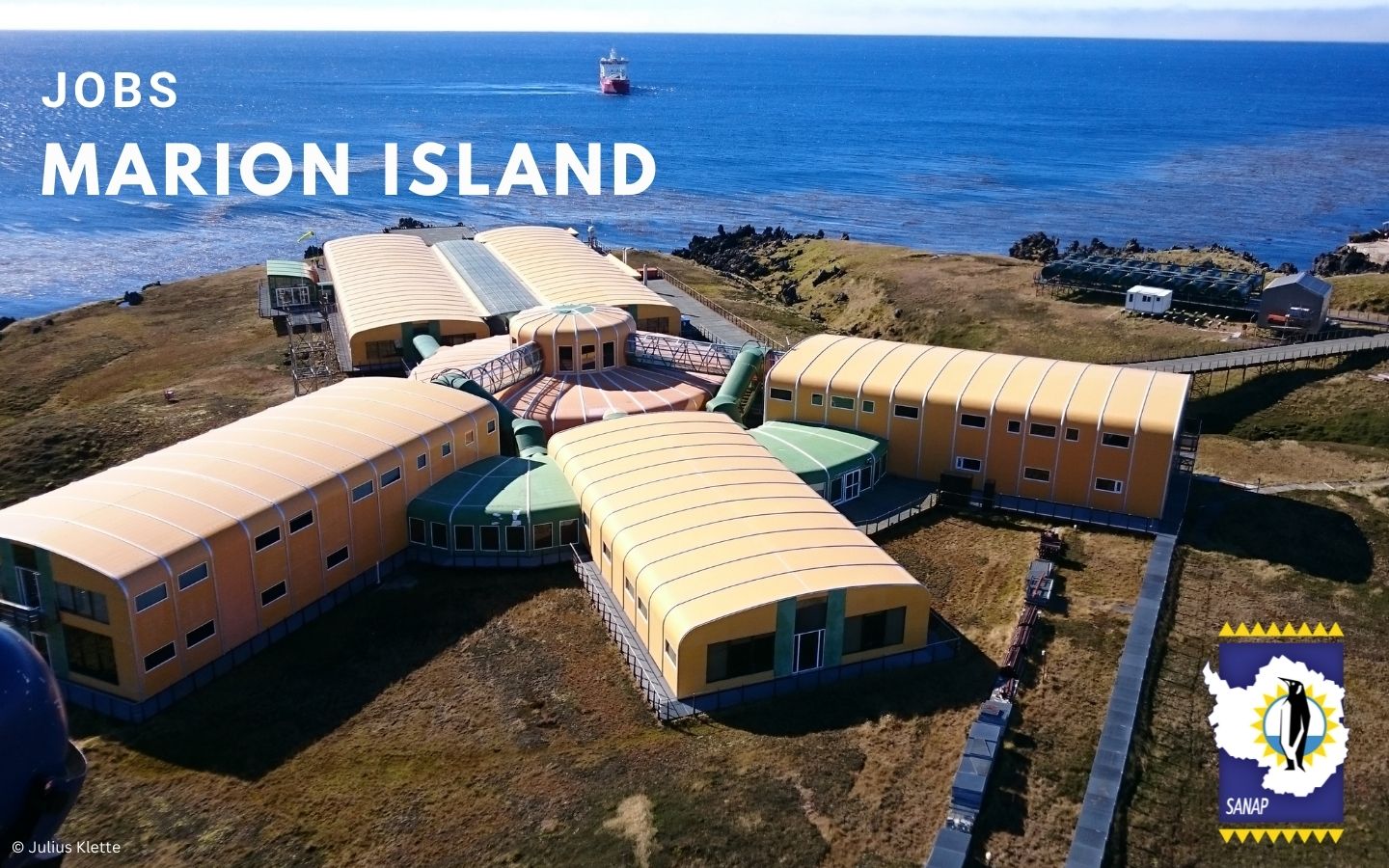
The following positions are available on the sub-Antarctic, Marion Island for the overwintering period (April 2023 to May 2024)
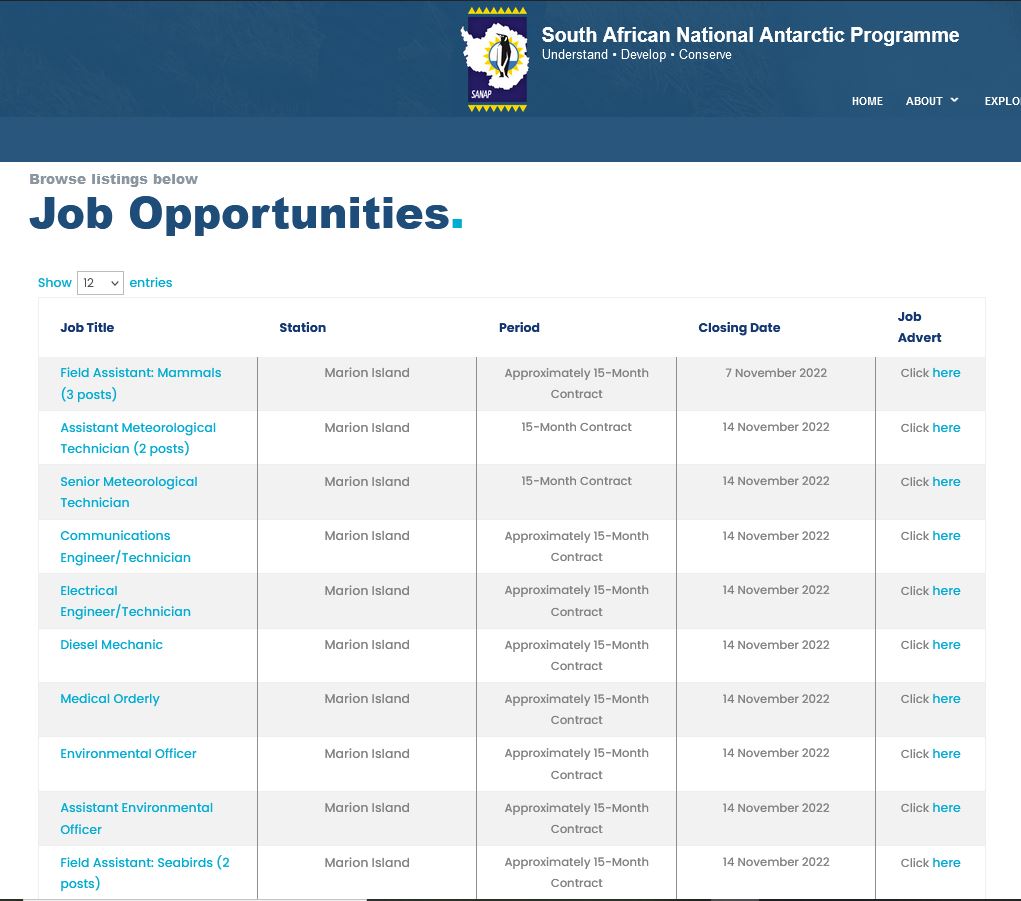
Applications close between 7 November and 14 November 2022.
Click here: View the positions
Anche Louw, Antarctic Legacy of South Africa, 31 October 2022.
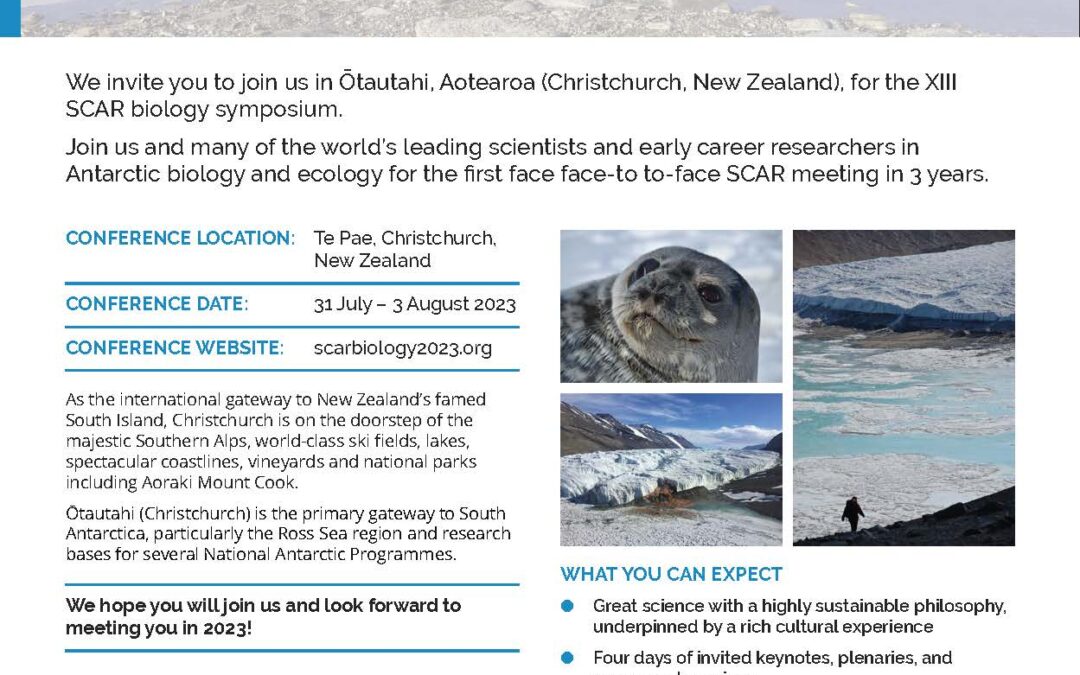
by Ria Olivier | Oct 18, 2022 | Announcement, Antarctica, Important Dates, Meetings, News, Research, SANAP, SCAR, Science, Southern Ocean
This is the first announcement for the Scientific Committee on Antarctic Research (SCAR) Biology Symposium 2023 in New Zealand.
Conference Website

Will you be attending/presenting a paper? Let ALSA know!



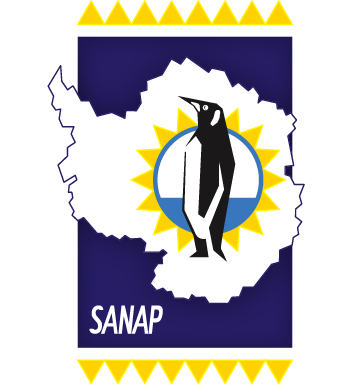


 The Prince Edward Islands was declared
The Prince Edward Islands was declared 









